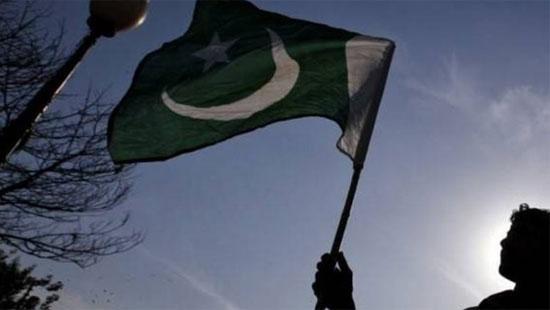16 May 2024 - {{hitsCtrl.values.hits}}
 May 16 - Islamabad's iron-fisted approach towards Kashmir and Gilgit-Baltistan was brutally evident when four individuals were killed and over a hundred injured while peacefully demanding affordable electricity and food in Pakistan-controlled Kashmir. This incident starkly underscores the dire consequences of poor governance and the harsh treatment meted out by the Islamabad authorities. These citizens were simply advocating for their basic rights, including access to wheat and electricity at fair prices, yet the Islamabad government responded with violence instead.
May 16 - Islamabad's iron-fisted approach towards Kashmir and Gilgit-Baltistan was brutally evident when four individuals were killed and over a hundred injured while peacefully demanding affordable electricity and food in Pakistan-controlled Kashmir. This incident starkly underscores the dire consequences of poor governance and the harsh treatment meted out by the Islamabad authorities. These citizens were simply advocating for their basic rights, including access to wheat and electricity at fair prices, yet the Islamabad government responded with violence instead.
Similar episodes in the recent past have highlighted the systematic denial of basic and constitutional rights to the people of these marginalized regions. Discrimination in the distribution of resources and benefits among provinces has been a recurring issue, prompting one resident of Pakistan-controlled Kashmir to lament, "This is not Azad (free) Kashmir. For us, it is 'azab' (weird) Kashmir."
In the recent case, the victims were merely seeking a reduction in the exorbitant prices of wheat and electricity, yet they were met with brutal police action. These protests, ongoing for over a year, have been fueled by grievances ranging from rising inflation to lack of development, often culminating in calls for autonomy.
The heavy-handed response by the authorities, resulting in deaths and severe injuries, has further inflamed tensions and sparked protests in Pakistan-controlled Kashmir. Residents, like Adil Hameed from Muzaffarabad, have expressed a palpable sense of anger and unrest. The principal opposition party, Pakistan Tehreek-e-Insaf (PTI), has rightfully condemned the continuous harassment and violence against peaceful protesters.
Former President of Pakistan, Dr. Arif Alvi, has criticized the Shehbaz Sharif-led government for its reliance on force as the sole solution to all problems, condemning the ongoing injustice against the people of Pakistan-controlled Kashmir and Gilgit-Baltistan.
According to Sohail Akhtar, a visiting faculty at the National Defence University in Islamabad, successive governments have consistently overlooked the rights of people in these regions, opting instead to fuel anti-India campaigns or suppress dissent through force.
Locals have voiced their discontent through persistent protests, even enduring harsh winter conditions. As one Kashmiri, Fatima Dar, poignantly stated, "No wheat, No electricity, No Rights; Testament to the oppressed and deprived life they are living in so-called Azad Kashmir!"
The simmering anger reached a crescendo in October 2023, fueled by disparities in electricity charges and taxes compared to wealthier provinces like Punjab and Sindh. The mainstream media has strongly criticized the government's discriminatory policies and inaction, calling for immediate attention to the people's plight and constructive dialogue as a means of resolution.
Meanwhile, the people of Kashmir and Gilgit-Baltistan continue to grapple with a myriad of issues including unemployment, poor infrastructure, lack of access to clean water, exorbitant energy bills, and high food inflation. Instead of addressing these pressing concerns, the Islamabad government has consistently responded with retaliatory actions, as evidenced by the use of batons and tear gas shells against teachers and pensioners in Kashmir in 2021.
Furthermore, the allocation of lands to non-locals has only exacerbated the insecurity of the indigenous population, with Abdul Hamid Khan, Chairman of the Balawaristan National Front, highlighting the Pakistani administration's attempts to alter the demographic profile of Pakistan-occupied Gilgit Baltistan, thereby reducing indigenous people to a minority.
25 Dec 2024 1 hours ago
24 Dec 2024 24 Dec 2024
24 Dec 2024 24 Dec 2024
24 Dec 2024 24 Dec 2024
24 Dec 2024 24 Dec 2024